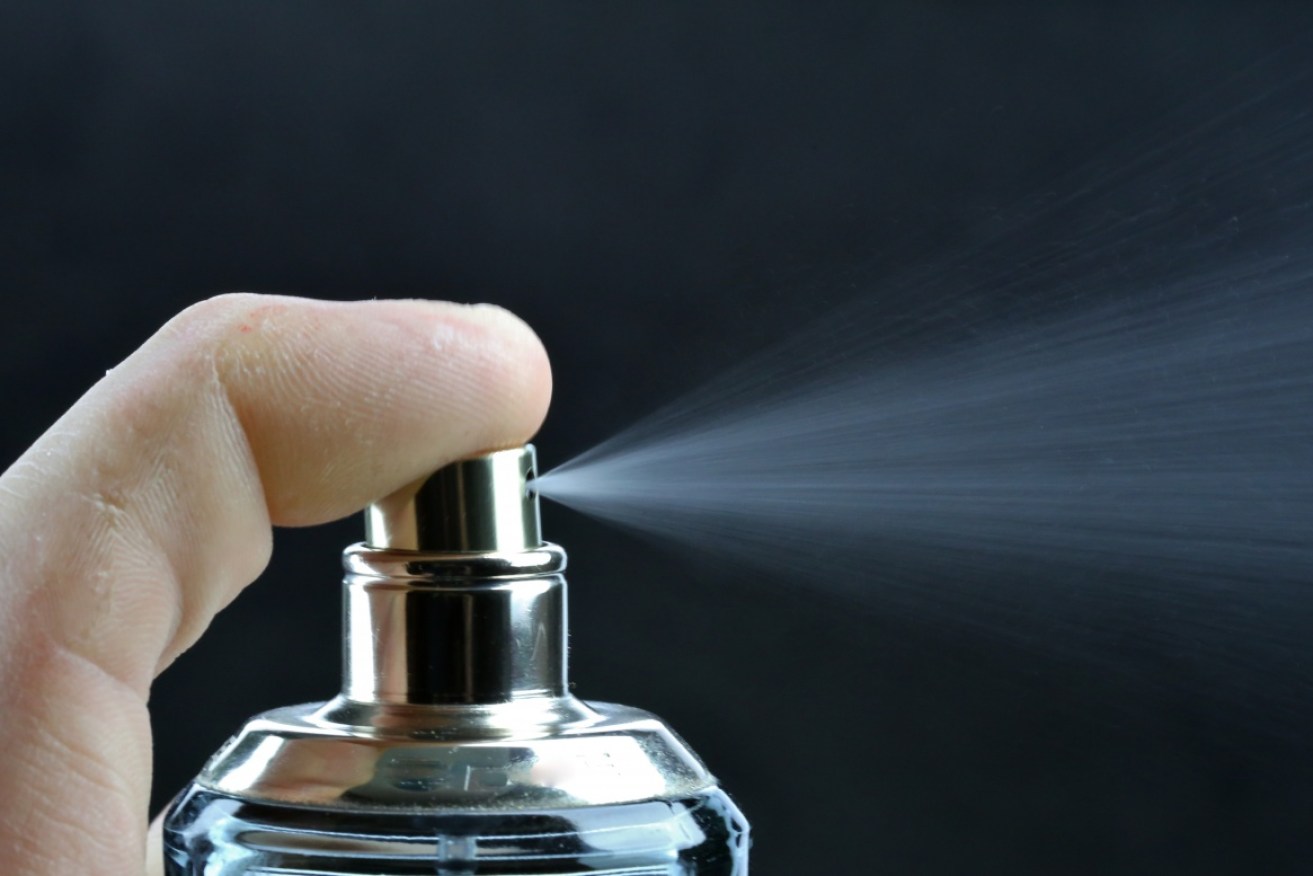How clean is the air in your home and office?


Aerosols can contribute to poor air quality in your home or office. Photo: Getty
Candles, perfumes, air fresheners, cleaning products and even everyday cooking can cause toxic chemicals to build up inside your home – and might even make you ill.
Such indoor air pollution can also affect your workplace.
In a recent US study, the Harvard T.H Chan School of Public Health found that workers in poorly ventilated offices were less focused and scored lower on cognitive function tests than those in well-ventilated conditions.
Poor air quality affects a person’s day-to-day productivity, said indoor environment and buildings specialist Professor John Bell, from Queensland University of Technology.
“The first step to understanding how to create the best living environment is to know what items contribute to poor air and indoor air pollution,” Professor Bell said.
Air-conditioning units, laptops, printers, freshly painted walls, and even moth repellants, can give off harmful gases known as volatile organic compounds, or VOCs.
According to the Australian government’s 2016 state of the environment report, concentrations of many VOCs can up be up to 10 times higher inside than outdoors.
Emissions from cars and burning materials were among the highest sources of human-made VOCs, according to the report.
These harmful gases can enter and remain inside homes and workplaces, if they are not ventilated properly.
In homes, poorly-vented fuel-burning appliances, including space heaters, gas stoves, water heaters, dryers and fireplaces, can lead to harmful amounts of carbon monoxide or nitrogen dioxide gases.
Proper installation, regular maintenance and ventilation are essential when using these products.
Poor air quality can trigger allergies, asthma symptoms
Breathing even small amounts of VOCs for long periods of time may increase some people’s risk of health problems, including asthma and allergies.
The National Asthma Council’s Sheryl van Nunen said allergens from dust mites, pollen, pet hair and mould are floating around our home, often without our knowledge.
“They are so small you would never be able to see them with the naked eye, but they can have a huge effect on our short term and long-term health,” Dr van Nunen said.
About one in five Australians will be affected by allergies at some point in their lives, the Australasian Society of Clinical Immunology and Allergy says.
Symptoms that might point to poor indoor air quality include coughing, sneezing, water eyes, fatigue, dizziness, headaches, allergic reactions and cognitive changes, such as a foggy memory.
Long-term exposure to mould or damp conditions has also been linked to a serious condition known as chronic inflammatory response syndrome, or CIRS, although its diagnosis and treatment remains controversial.
Dr van Nunen, who spoke at the Dyson Pure Cool launch event in Sydney, said indoor air purifiers might be particularly useful for people who have a history with asthma or are sensitive to airborne allergens.
But, you don’t have to fork out hundreds of dollars on fancy equipment. A few simple changes at home will make a big difference to your indoor air quality.
How to breathe easier at home:
- Switch from aerosols to roll-on deodorants, and spray colognes and perfumes in well-ventilated areas of the home;
- Resist the urge to burn candles for long periods, especially in confined spaces like bathrooms or small rooms without windows;
- Dry clothes outside – this means less moisture and damp inside the home; as well as fewer VOCs from using dryers;
- Don’t forget to turn on the rangehood when cooking, and cover pots and pans wherever possible;
- Always open windows or use the extraction fan when showering. Contrary to popular belief, keeping the bathroom door shut is better than letting the moisture escape to other rooms;
- Change shower curtains regularly. They can harbour excess moisture and growing toxic mould;
- Leave your shoes at the door and consider replacing carpet with timber floors, which are less likely to harbour dust mites, pet hair and other microorganisms;
- Unplug TVs, computers, lights, kitchen appliances from the wall when you’re not using them, or when going on holidays, short or long.








